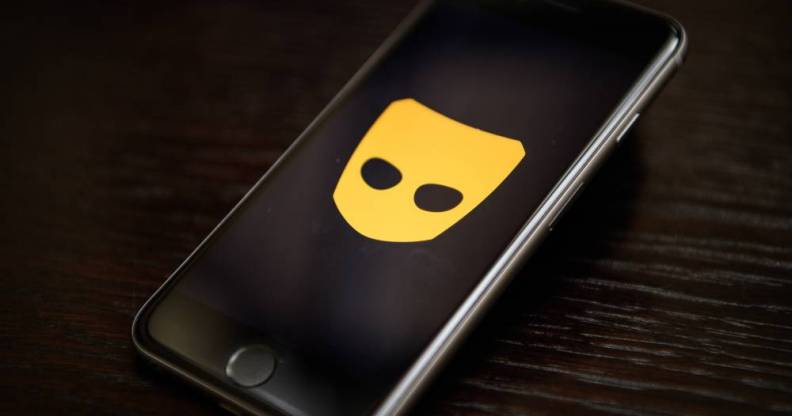Police arrest gang who ‘lured men on Grindr and forced them to empty their bank accounts’

Met police have urged Grindr users to be cautious when using the app. (Getty/Leon Neal)
A gang allegedly used Grindr to target as many as 20 queer victims, who they assaulted and robbed.
Authorities arrested three people in Ahmedabad, the main city of the western state of Gujarat, India, on Tuesday (15 February), Reuters reported.
Police officer J P Jadeja said the gang members had used Grindr to find potential victims who they lured to secluded areas to beat and rob.
In some cases, he said, they forced victims to send them bank transfers.
“Those arrested have confessed to having robbed at least 15 or 20 people using the same method in the last four months,” Jadeja said.
According to Reuters, the gang had believed their victims would not report them to authorities out of fear that they would be exposed for using Grindr. But one of the victims did complain to police about their horrific encounter.
India grappling with anti-LGBT+ violence
Homosexuality was decriminalised in India in 2018 by Supreme Court ruling. LGBT+ people in India are also protected from discrimination in employment, housing and the discredited practice of conversion therapy.
However, despite India’s wealth of diversity and long history of gender non-conformity, homophobia and transphobia are sadly all too common in society.
There is a lack of awareness and acceptance of the LGBT+ community, and queer people in India experience deadly violence directed towards their sexuality or gender identity.
In January, Onir, a gay Bollywood director, slammed the Indian government for banning his film about a gay army officer.
It was reported that India’s Ministry of Defence allegedly rejected Onir’s script over its “illegal” depiction of queer soldiers since LGBT+ personnel can’t service openly in the country’s armed forces.
But Onir said his film was inspired by the real-life story of a gay retired army officer who eventually quit the forces because of his sexuality.
He added that the government did not give his script a No Objection Certificate, which demands that filmmakers be granted clearance from the Defence Ministry to produce content about the armed forces.
Onir told The Independent that the requirement “itself is problematic” as “India has a film-certification board that should be doing this work”.
“I wanted to do something which celebrated it while also highlighting the way forward in terms of securing civil rights and changing societal perceptions [of the queer community],” Onir said.

